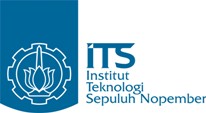Application of Time Cost Trade Off Method in Optimizing Time and Cost on Ship Refurbishment Projects KMP Dharma Rucitra 1 and MT Triaksa 17
Abstract
Delays that occur in the KMP Dharma Rucitra 1 ship refurbishment project have an impact on the MT Trikasa 17 ship refurbishment project, so that the project work must be accelerated in order not to exceed the contract. This study aims to overcome the delays that occur by finding the most optimal time acceleration value and the minimum cost. The time cost trade off method is often used in scheduling the repair of two or more ship units simultaneously to optimize project time and cost, so this method is considered to be able to overcome the problems that occur. Based on the repair list and main schedule data, the critical trajectory and productivity values of each job were obtained. The work on the critical trajectory was treated with variations of additional working hours (overtime) and variations of additional workers. The analysis shows that the addition of working hours (overtime) provides effective results, namely the addition of 1 working hour (overtime) with a reduction in time by 12.5% and a cost of Rp. 253,236,000 (4.35% increase). While the addition of labor provides effective results, namely the addition of 4 workers with a 25% reduction in time and costs of Rp. 245,140,000 (0.78% increase). Based on the two effective results, the most efficient result to overcome the delays that occur is the addition of 4 workers.
Keywords
Full Text:
PDFReferences
Sugiyanto, Manajemen Pengendalian Proyek. 1st ed. Surabaya : Scopindo Media Pustaka, 2020.
F. P. Widiatmaka, Manajemen Perawatan dan Perbaikan Kapal. Semarang : Penerbit Politeknik Ilmu Pelayaran Semarang, 2017.
J. Heizer, B. Render, and C. Munson, Operations Management : Sustainability and Supply Chain Management. 13th ed. New York : Pearson Education, 2020.
S. Hansen, E. Too, and T. Le, “An Epistemic Context-Based Decision-Making Framework for an Infrastructure Project Investment Decision in Indonesia,” Journal of Management in Engineering, vol. 38, no. 4, Mar. 2022.
I. A. P. S. Mahapatni, Metode Perencanaan dan Pengendalian Proyek Konstruksi. 1st ed. Denpasar : UNHI Press, 2019.
W. I. Ervianto, Teori Aplikasi Manajemen Proyek Konstruksi. Yogyakarta : ANDI, 2004.
A. Frederika, “Analisis Percepatan Pelaksanaan dengan Menambah Jam Kerja Optimum pada Proyek Konstruksi (Studi Kasus : Proyek Pembangunan Super Villa, Peti Tenget-Badung),” J. Ilmiah Tek. Sipil, vol. 14, no. 2, Jul. 2010.
A. Kusumadwitya, I. P. Mulyatno, and O. Mursid, “Analisis Optimalisasi Waktu dan Biaya pada Proyek Pembangunan Kapal Angkut Tank 7900 DWT,” J. Tek. Perkapalan, vol. 11, no. 1, pp. 97-104, Jan. 2023.
C. T. T. Dewi, I. P. Mulyatno, and P. Manik, “Analisis Percepatan Proyek Reparasi Kapal KT Tirtayasa II terhadap Biaya dengan Metode Time Cost Trade Off,” J. Tek. Perkapalan, vol. 10, no. 4, pp. 1-10, Oct. 2022.
C. Angelia, I. P. Mulyanto, and D. Chrismianto, “Aplikasi Metode Time Cost Trade Off Akibat Keterlambatan Bagian Mesin pada Proyek Pembangunan Mooring Boat Milik PT. Pertamina Trans Kontinental,” J. Tek. Perkapalan, vol. 9, no. 3, pp. 277–284, Jul. 2021.
T. E. Saragi, and R. U. A. Situmorang, “Optimasi Waktu dan Biaya Percepatan Proyek Menggunakan Metode Time Cost Trade Off dengan Alternatif Penambahan Tenaga Kerja dan Jam Kerja (Lembur) (Studi Kasus : Pembangunan Gedung Convention Hall Kab. Deli Serdang),” J. Tek. Sipil, vol. 1, no. 2, pp. 53–69, May. 2022.
E. A. Budianto, and A. E. Husin, “Analisis Optimasi Waktu dan Biaya dengan Metode Time Cost Trade Off pada Proyek Gudang Amunisi,” Jurnal Aplikasi Teknik Sipil, vol. 19, no. 3, pp. 305-310, Aug. 2021.
Republik Indonesia, Keputusan Menteri Tenaga Kerja dan Transmigrasi Nomor KEP. 102/MEN/VI/2004 Tentang Waktu Kerja Lembur Dan Upah Kerja Lembur.
H. Dimyati, K. Nurjaman, Manajemen Proyek. 1st ed. Yogyakarta : Pustaka Setia, 2014.
C. Orumie Ukamaka, :Implementation of Project Evaluation and Review Technique (PERT) and Critical Path Method (CPM) L a Comparative Study,” Int. J. Ind. Oper. Res., vol. 3, no. 1, 2020.
I. Soeharto, Manajemen Proyek (Dari Konseptual Sampai Operasional). 2nd ed. Jakarta : Erlangga, 1999.
L. A. Sutciana, W. Maranatha, and T. H. Nainggolan, “Penerapan Metode Fast track untuk Percepatan Penjadwalan (Studi Kasus : Pembangunan Gedung Laboratorium Vokasi dan Industri Kreatif Vokasi Tahap I Universitas Brawijaya),” E-Journal GELAGAR, vol. 2, no. 1, pp. 1-7. 2020.
Z. R. Wardana, and I. N. D. P. Putra, “Analisis Percepatan Proyek Menggunakan Metode Fast track dan Metode Crashing pada Proyek Pembangunan Gedung Bertingkat,” CIVED, vol. 10, no. 2, pp. 491-500, Jun. 2023.
Y. B. Mokalu, T. T. Arsjad, and G. Y. Malingkas, “Analisis Percepatan Proyek dengan Menggunakan Metode Fast track (Studi Kasus : Proyek Pembangunan Mall Pelayanan Publik Manado),” TEKNO, vol. 20, no. 82, pp 621-629, Dec. 2022.
Y. Stefanus, I. Wijatmiko, and E. A. Suryo, “Analisis Percepatan Waktu Penyelesaian Proyek Menggunakan Metode Fast-Track dan Crash Program,” Media Teknik Sipil, vol. 15, no. 1, pp 74-81, Feb. 2017.
DOI: http://dx.doi.org/10.12962%2Fj25481479.v9i4.21830
Refbacks
 |  |  |  |
| |  |  |
|
|
|
|
|
P-ISSN: 2541-5972
E-ISSN: 2548-1479
IJMEIR journal published by Department of Marine Engineering, Faculty of Marine Technology, Institut Teknologi Sepuluh Nopember Surabaya Indonesia under licenced Creative Commons Attribution-ShareAlike 4.0 International Licence. Based on https://iptek.its.ac.id/index.php/ijmeir/


1.png)
